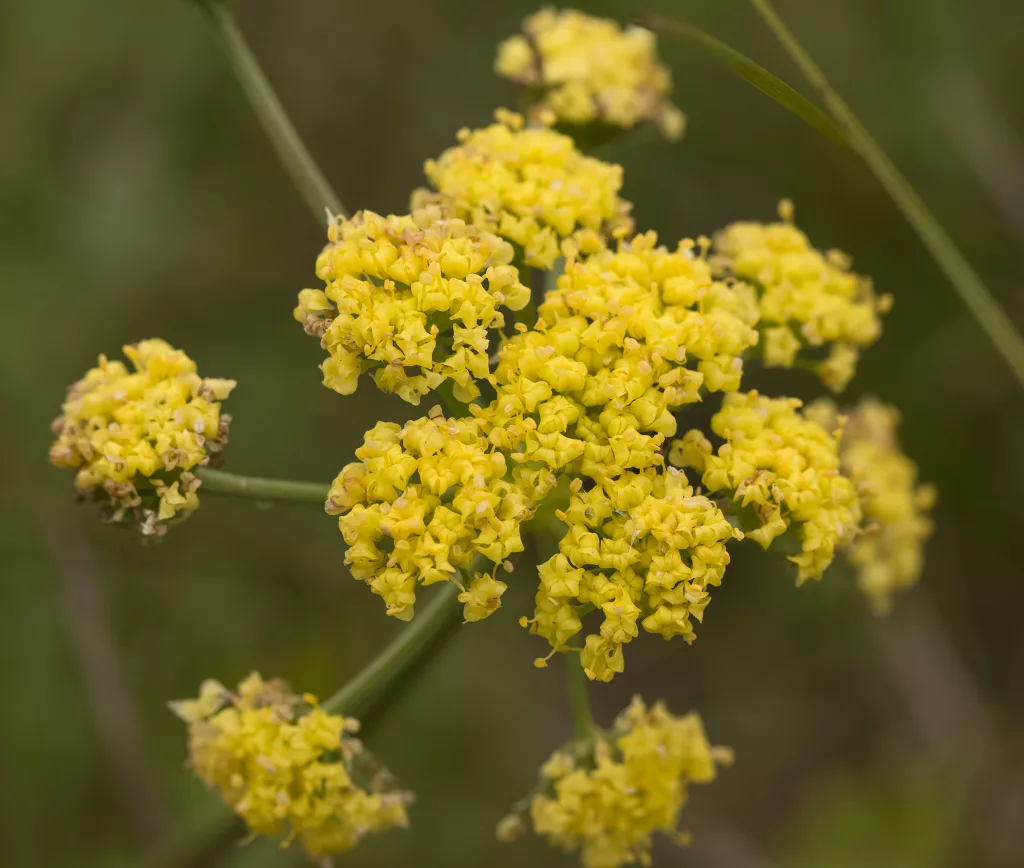Photo: Peter Pearsall / U.S. Fish and Wildlife Service
CAMAS, Wash.— In response to the destruction of roughly 90% of the global population of Bradshaw’s lomatium by a private golf course in Camas, Washington, the Center for Biological Diversity today called on the U.S. Fish and Wildlife Service and Washington State Department of Ecology to act.
In letters to the two agencies, the Center asked the federal agency to restore protections for the rare plant under the Endangered Species Act and the state agency to take enforcement action against the landowner if it illegally destroyed a wetland.
“The Camas Meadows Golf Course’s senseless decision to rototill 15 acres of wetlands and plow under nearly 4 million Bradshaw’s lomatium plants demands action,” said Noah Greenwald, endangered species director at the Center. “This is a serious blow to these imperiled plants and state and federal agencies must protect them.”
Bradshaw’s lomatium is an herb only found in open, seasonally wet prairies in Oregon and Washington. Periodic disturbance from flooding, fire or other factors is important to maintain the open conditions the plant needs.
For 30 years the golf course had helped the plant by mowing in the fall when the Bradshaw’s lomatium are dormant. It’s unclear what drove the decision to instead plow this year, which certainly damaged the roots of dormant plants and likely changed the soil conditions they need to survive.
In 2021 the Service removed the lomatium’s status as an endangered species, arguing it had recovered. In doing so, the agency recognized that no agreements were in place to ensure protection of the golf course population but incorrectly assumed that management would stay the same. The Center’s letter noted that the Service could have instead downlisted the lomatium to threatened rather than stripping protections altogether.
“The Endangered Species Act is a tremendously successful law,” said Greenwald. “It’s important to recognize this success and reduce protections when that’s warranted. But in this case other protections weren’t in place and these irreplaceable plants are paying the price.”
Washington state regulates wetlands under the Water Pollution Control Act and other laws, requiring landowners to seek a permit for actions that harm wetlands. The golf course didn’t seek such a permit before plowing. The Center’s letter to the state calls for an investigation to determine if laws were broken in the process and, if so, for the landowner to be fined, as well as action taken to ensure this doesn’t happen again.
The Golf Course population was one of only two in Washington, with the other a small population on the Lacamas Prairie Preserve managed by the state. There are 24 scattered populations in Oregon, with a number of those also occurring on private lands, where there are no protections.

